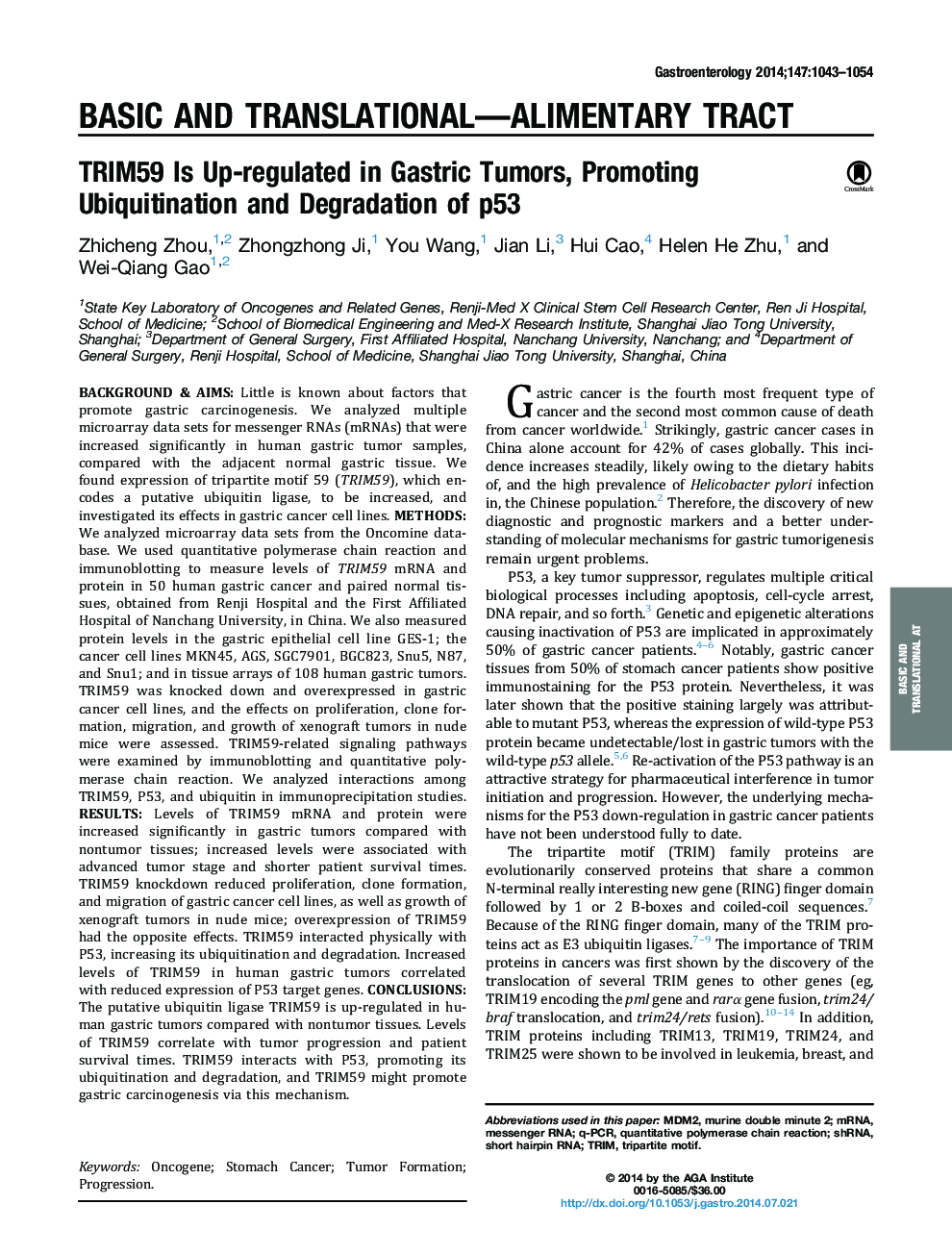| Article ID | Journal | Published Year | Pages | File Type |
|---|---|---|---|---|
| 6094736 | Gastroenterology | 2014 | 12 Pages |
Background & AimsLittle is known about factors that promote gastric carcinogenesis. We analyzed multiple microarray data sets for messenger RNAs (mRNAs) that were increased significantly in human gastric tumor samples, compared with the adjacent normal gastric tissue. We found expression of tripartite motif 59 (TRIM59), which encodes a putative ubiquitin ligase, to be increased, and investigated its effects in gastric cancer cell lines.MethodsWe analyzed microarray data sets from the Oncomine database. We used quantitative polymerase chain reaction and immunoblotting to measure levels of TRIM59 mRNA and protein in 50 human gastric cancer and paired normal tissues, obtained from Renji Hospital and the First Affiliated Hospital of Nanchang University, in China. We also measured protein levels in the gastric epithelial cell line GES-1; the cancer cell lines MKN45, AGS, SGC7901, BGC823, Snu5, N87, and Snu1; and in tissue arrays of 108 human gastric tumors. TRIM59 was knocked down and overexpressed in gastric cancer cell lines, and the effects on proliferation, clone formation, migration, and growth of xenograft tumors in nude mice were assessed. TRIM59-related signaling pathways were examined by immunoblotting and quantitative polymerase chain reaction. We analyzed interactions among TRIM59, P53, and ubiquitin in immunoprecipitation studies.ResultsLevels of TRIM59 mRNA and protein were increased significantly in gastric tumors compared with nontumor tissues; increased levels were associated with advanced tumor stage and shorter patient survival times. TRIM59 knockdown reduced proliferation, clone formation, and migration of gastric cancer cell lines, as well as growth of xenograft tumors in nude mice; overexpression of TRIM59 had the opposite effects. TRIM59 interacted physically with P53, increasing its ubiquitination and degradation. Increased levels of TRIM59 in human gastric tumors correlated with reduced expression of P53 target genes.ConclusionsThe putative ubiquitin ligase TRIM59 is up-regulated in human gastric tumors compared with nontumor tissues. Levels of TRIM59 correlate with tumor progression and patient survival times. TRIM59 interacts with P53, promoting its ubiquitination and degradation, and TRIM59 might promote gastric carcinogenesis via this mechanism.
